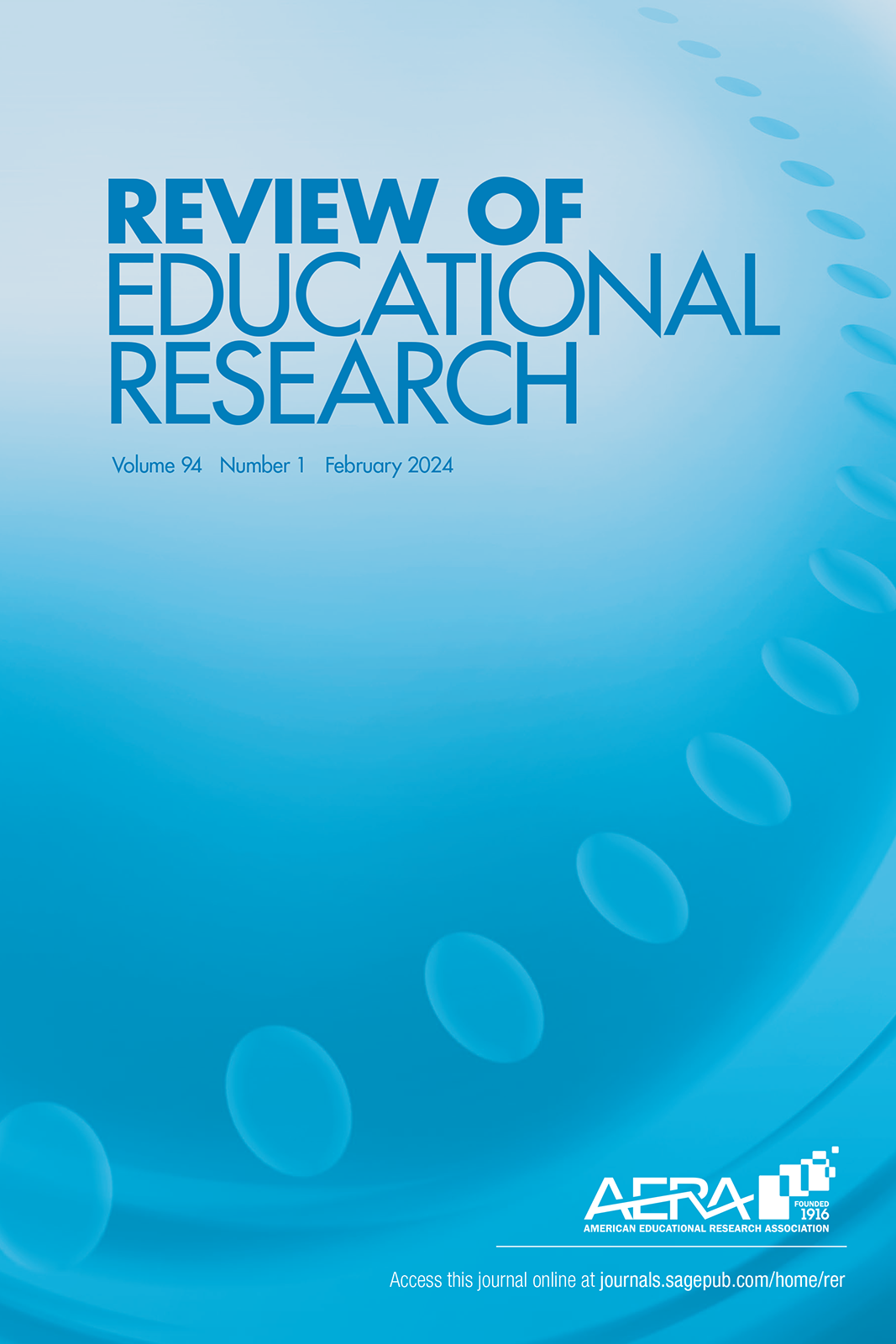Multimedia Design for Learning: An Overview of Reviews With Meta-Meta-Analysis
IF 7.4
1区 教育学
Q1 EDUCATION & EDUCATIONAL RESEARCH
引用次数: 19
Abstract
Multimedia is ubiquitous in 21st-century education. Cognitive load theory and the cognitive theory of multimedia learning both postulate that the quality of multimedia design heavily influences learning. We sought to identify how to best design multimedia and review how well those learning theories held up to meta-analyses. We conducted an overview of systematic reviews that tested the effects of multimedia design on learning or cognitive load. We found 29 reviews including 1,189 studies and 78,177 participants. We found 11 design principles that demonstrated significant, positive, meta-analytic effects on learning and five that significantly improved management of cognitive load. The largest benefits were for captioning second-language videos, temporal/spatial contiguity, and signaling. We also found robust evidence for modality, animation, coherence/removing seductive details, anthropomorphics, segmentation, personalization, pedagogical agents, and verbal redundancy effects. Good design was more important for more complex materials, and in system-paced environments (e.g., lectures) than self-paced ones (e.g., websites). Results supported many tenets of both theories. We highlight a range of evidence-based strategies that could be implemented by educators.多媒体学习设计:元-元分析综述
多媒体在21世纪的教育中无处不在。认知负荷理论和多媒体学习的认知理论都认为多媒体设计的质量对学习有很大影响。我们试图确定如何最好地设计多媒体,并回顾这些学习理论在元分析中的表现。我们对测试多媒体设计对学习或认知负荷的影响进行了系统综述。我们发现了29篇综述,包括1189项研究和78177名参与者。我们发现11个设计原则对学习表现出显著的、积极的、元分析的影响,5个设计原则显著改善了认知负荷的管理。最大的好处是为第二语言视频配字幕、时间/空间连续性和信号。我们还发现了情态、动画、连贯性/去除诱惑性细节、拟人化、分割、个性化、教学代理和语言冗余效应的有力证据。好的设计对于更复杂的材料和系统节奏的环境(例如,讲座)比自节奏的环境(例如,网站)更重要。结果支持了这两种理论的许多原则。我们强调了一系列可以由教育工作者实施的基于证据的策略。
本文章由计算机程序翻译,如有差异,请以英文原文为准。
求助全文
约1分钟内获得全文
求助全文
来源期刊

Review of Educational Research
EDUCATION & EDUCATIONAL RESEARCH-
CiteScore
24.10
自引率
2.70%
发文量
28
期刊介绍:
The Review of Educational Research (RER), a quarterly publication initiated in 1931 with approximately 640 pages per volume year, is dedicated to presenting critical, integrative reviews of research literature relevant to education. These reviews encompass conceptualizations, interpretations, and syntheses of scholarly work across fields broadly pertinent to education and educational research. Welcoming submissions from any discipline, RER encourages research reviews in psychology, sociology, history, philosophy, political science, economics, computer science, statistics, anthropology, and biology, provided the review addresses educational issues. While original empirical research is not published independently, RER incorporates it within broader integrative reviews. The journal may occasionally feature solicited, rigorously refereed analytic reviews of special topics, especially from disciplines underrepresented in educational research.
 求助内容:
求助内容: 应助结果提醒方式:
应助结果提醒方式:


